BMW iX3 vs Volvo EC40 - Differences and prices compared
Costs and Efficiency:
When it comes to price and running costs, the biggest differences usually appear. This is often where you see which car fits your budget better in the long run.
Volvo EC40 has a noticeable advantage in terms of price – it starts at 46600 £, while the BMW iX3 costs 59100 £. That’s a price difference of around 12437 £.
In terms of energy consumption, the advantage goes to the BMW iX3: with 15.10 kWh per 100 km, it’s hardly perceptible more efficient than the Volvo EC40 with 16.20 kWh. That’s a difference of about 1.10 kWh.
As for range, the BMW iX3 performs noticeable better – achieving up to 805 km, about 221 km more than the Volvo EC40.
Engine and Performance:
Power, torque and acceleration say a lot about how a car feels on the road. This is where you see which model delivers more driving dynamics.
When it comes to engine power, the BMW iX3 has a barely noticeable edge – offering 469 HP compared to 442 HP. That’s roughly 27 HP more horsepower.
In acceleration from 0 to 100 km/h, the Volvo EC40 is barely noticeable quicker – completing the sprint in 4.60 s, while the BMW iX3 takes 4.90 s. That’s about 0.30 s faster.
In terms of top speed, the BMW iX3 performs to a small extent better – reaching 210 km/h, while the Volvo EC40 tops out at 180 km/h. The difference is around 30 km/h.
There’s also a difference in torque: Volvo EC40 pulls barely noticeable stronger with 670 Nm compared to 645 Nm. That’s about 25 Nm difference.
Space and Everyday Use:
Beyond pure performance, interior space and usability matter most in daily life. This is where you see which car is more practical and versatile.
Seats: offers more seating capacity – vs .
In curb weight, Volvo EC40 is a bit lighter – 2065 kg compared to 2360 kg. The difference is around 295 kg.
In terms of boot space, the BMW iX3 offers noticeable more room – 520 L compared to 404 L. That’s a difference of about 116 L.
In maximum load capacity, the BMW iX3 performs noticeable better – up to 1750 L, which is about 554 L more than the Volvo EC40.
When it comes to payload, BMW iX3 minimal takes the win – 465 kg compared to 435 kg. That’s a difference of about 30 kg.
Who wins the race?
The BMW iX3 proves to be leaves the rival little chance and therefore becomes our DriveDuel Champion!
BMW iX3 is the better all-rounder in this comparison.
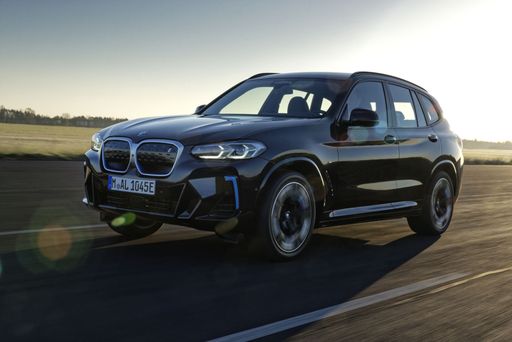 @ BMW Group Press
@ BMW Group Press
BMW iX3
Costs and Consumption
View detailed analysis
Engine and Performance
View detailed analysis
Dimensions and Body
View detailed analysis
BMW iX3
The BMW iX3 brings BMW's familiar SUV poise into the electric era, blending restrained styling and a comfortable, composed ride that will please traditionalists dipping their toes into electrification. It's quiet, practical and rather grown-up about going electric — a sensible choice for buyers who want BMW driving manners without the drama.
details @ BMW Group Press
@ BMW Group Press
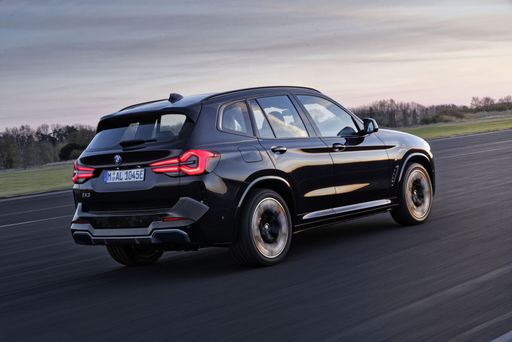 @ BMW Group Press
@ BMW Group Press
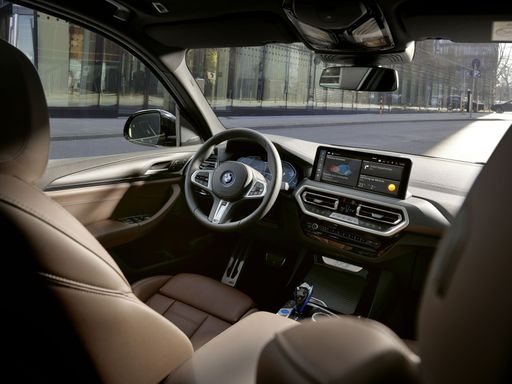 @ BMW Group Press
@ BMW Group Press
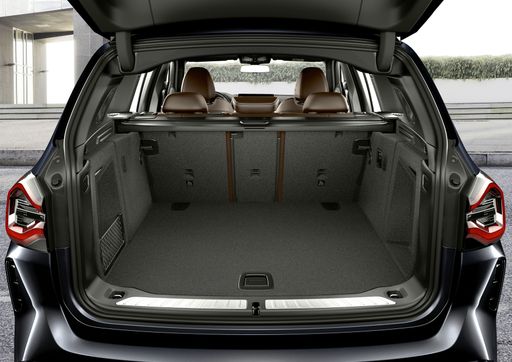 @ BMW Group Press
@ BMW Group Press
Volvo EC40
The Volvo EC40 feels like a polished slice of Scandinavian calm on wheels, blending minimalist design with a cocoon-like interior that makes everyday driving surprisingly serene. It’s an electric compact that puts safety and comfort front and center, while still injecting enough personality and tech-savvy charm to keep city buyers smiling.
details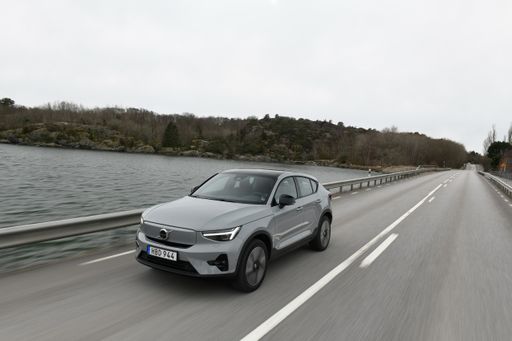 @ Volvo Cars
@ Volvo Cars
 @ BMW Group Press
@ BMW Group Press
|
 @ Volvo Cars
@ Volvo Cars
|
|
|
|
Costs and Consumption |
|
|---|---|
|
Price
59100 - 64600 £
|
Price
46600 - 59000 £
|
|
Consumption L/100km
-
|
Consumption L/100km
-
|
|
Consumption kWh/100km
15.10 kWh
|
Consumption kWh/100km
16.2 - 17.3 kWh
|
|
Electric Range
805 km
|
Electric Range
488 - 584 km
|
|
Battery Capacity
108.70 kWh
|
Battery Capacity
67 - 79 kWh
|
|
co2
0 g/km
|
co2
0 g/km
|
|
Fuel tank capacity
-
|
Fuel tank capacity
-
|
Dimensions and Body |
|
|---|---|
|
Body Type
SUV
|
Body Type
SUV
|
|
Seats
5
|
Seats
5
|
|
Doors
5
|
Doors
5
|
|
Curb weight
2360 kg
|
Curb weight
2065 - 2185 kg
|
|
Trunk capacity
520 L
|
Trunk capacity
404 L
|
|
Length
4782 mm
|
Length
4440 mm
|
|
Width
1895 mm
|
Width
1873 mm
|
|
Height
1635 mm
|
Height
1591 mm
|
|
Max trunk capacity
1750 L
|
Max trunk capacity
1196 L
|
|
Payload
465 kg
|
Payload
395 - 435 kg
|
Engine and Performance |
|
|---|---|
|
Engine Type
Electric
|
Engine Type
Electric
|
|
Transmission
Automatic
|
Transmission
Automatic
|
|
Transmission Detail
Reduction Gearbox
|
Transmission Detail
Reduction Gearbox
|
|
Drive Type
All-Wheel Drive
|
Drive Type
Rear-Wheel Drive, All-Wheel Drive
|
|
Power HP
469 HP
|
Power HP
238 - 442 HP
|
|
Acceleration 0-100km/h
4.90 s
|
Acceleration 0-100km/h
4.6 - 7.3 s
|
|
Max Speed
210 km/h
|
Max Speed
180 km/h
|
|
Torque
645 Nm
|
Torque
420 - 670 Nm
|
|
Number of Cylinders
-
|
Number of Cylinders
-
|
|
Power kW
345 kW
|
Power kW
175 - 325 kW
|
|
Engine capacity
-
|
Engine capacity
-
|
General |
|
|---|---|
|
Model Year
2026
|
Model Year
2024
|
|
CO2 Efficiency Class
A
|
CO2 Efficiency Class
A
|
|
Brand
BMW
|
Brand
Volvo
|
What drive types are available for the BMW iX3?
The BMW iX3 is available as All-Wheel Drive.
The prices and data displayed are estimates based on German list prices and may vary by country. This information is not legally binding.
